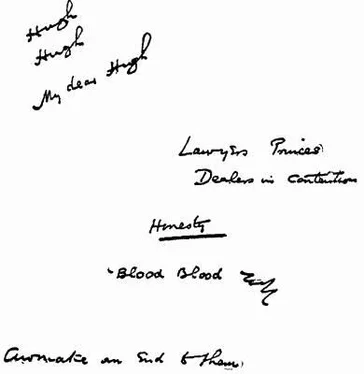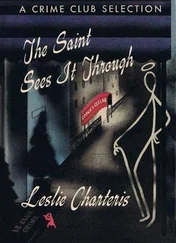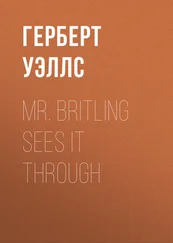Herbert Wells - Mr. Britling Sees It Through
Здесь есть возможность читать онлайн «Herbert Wells - Mr. Britling Sees It Through» весь текст электронной книги совершенно бесплатно (целиком полную версию без сокращений). В некоторых случаях можно слушать аудио, скачать через торрент в формате fb2 и присутствует краткое содержание. Жанр: Классическая проза, на английском языке. Описание произведения, (предисловие) а так же отзывы посетителей доступны на портале библиотеки ЛибКат.
- Название:Mr. Britling Sees It Through
- Автор:
- Жанр:
- Год:неизвестен
- ISBN:нет данных
- Рейтинг книги:4 / 5. Голосов: 1
-
Избранное:Добавить в избранное
- Отзывы:
-
Ваша оценка:
- 80
- 1
- 2
- 3
- 4
- 5
Mr. Britling Sees It Through: краткое содержание, описание и аннотация
Предлагаем к чтению аннотацию, описание, краткое содержание или предисловие (зависит от того, что написал сам автор книги «Mr. Britling Sees It Through»). Если вы не нашли необходимую информацию о книге — напишите в комментариях, мы постараемся отыскать её.
Mr. Britling Sees It Through — читать онлайн бесплатно полную книгу (весь текст) целиком
Ниже представлен текст книги, разбитый по страницам. Система сохранения места последней прочитанной страницы, позволяет с удобством читать онлайн бесплатно книгу «Mr. Britling Sees It Through», без необходимости каждый раз заново искать на чём Вы остановились. Поставьте закладку, и сможете в любой момент перейти на страницу, на которой закончили чтение.
Интервал:
Закладка:
"He looked at me and grinned with a sort of pale satisfaction in keeping up to the last—dying good Ortheris to the finish. I just stood up helpless in front of him, still rather dazed.
"He said something about having a thundering thirst on him.
"I really don't believe he felt any pain. He would have done if he had lived.
"And then while I was fumbling with my water-bottle, he collapsed. He forgot all about Ortheris. Suddenly he said something that cut me all to ribbons. His face puckered up just like the face of a fretful child which refuses to go to bed. 'I didn't want to be aut of it,' he said petulantly. 'And I'm done!' And then—then he just looked discontented and miserable and died—right off. Turned his head a little way over. As if he was impatient at everything. Fainted—and fluttered out.
"For a time I kept trying to get him to drink....
"I couldn't believe he was dead....
"And suddenly it was all different. I began to cry. Like a baby. I kept on with the water-bottle at his teeth long after I was convinced he was dead. I didn't want him to be aut of it! God knows how I didn't. I wanted my dear little Cockney cad back. Oh! most frightfully I wanted him back.
"I shook him. I was like a scared child. I blubbered and howled things.... It's all different since he died.
"My dear, dear Father, I am grieving and grieving—and it's altogether nonsense. And it's all mixed up in my mind with the mess I trod on. And it gets worse and worse. So that I don't seem to feel anything really, even for Teddy.
"It's been just the last straw of all this hellish foolery....
"If ever there was a bigger lie, my dear Daddy, than any other, it is that man is a reasonable creature....
"War is just foolery—lunatic foolery—hell's foolery....
"But, anyhow, your son is sound and well—if sorrowful and angry. We were relieved that night. And there are rumours that very soon we are to have a holiday and a refit. We lost rather heavily. We have been praised. But all along, Essex has done well. I can't reckon to get back yet, but there are such things as leave for eight-and-forty hours or so in England....
"I shall be glad of that sort of turning round....
"I'm tired. Oh! I'm tired....
"I wanted to write all about Jewell to his mother or his sweetheart or some one; I wanted to wallow in his praises, to say all the things I really find now that I thought about him, but I haven't even had that satisfaction. He was a Poor Law child; he was raised in one of those awful places between Sutton and Banstead in Surrey. I've told you of all the sweethearting he had. 'Soldiers Three' was his Bible; he was always singing 'Tipperary,' and he never got the tune right nor learnt more than three lines of it. He laced all his talk with 'b——y'; it was his jewel, his ruby. But he had the pluck of a robin or a squirrel; I never knew him scared or anything but cheerful. Misfortunes, humiliations, only made him chatty. And he'd starve to have something to give away.
"Well, well, this is the way of war, Daddy. This is what war is. Damn the Kaiser! Damn all fools.... Give my love to the Mother and the bruddykins and every one...."
§ 19
It was just a day or so over three weeks after this last letter from Hugh that Mr. Direck reappeared at Matching's Easy. He had had a trip to Holland—a trip that was as much a flight from Cissie's reproaches as a mission of inquiry. He had intended to go on into Belgium, where he had already been doing useful relief work under Mr. Hoover, but the confusion of his own feelings had checked him and brought him back.
Mr. Direck's mind was in a perplexity only too common during the stresses of that tragic year. He was entangled in a paradox; like a large majority of Americans at that time his feelings were quite definitely pro-Ally, and like so many in that majority he had a very clear conviction that it would be wrong and impossible for the United States to take part in the war. His sympathies were intensely with the Dower House and its dependent cottage; he would have wept with generous emotion to see the Stars and Stripes interwoven with the three other great banners of red, white and blue that led the world against German imperialism and militarism, but for all that his mind would not march to that tune. Against all these impulses fought something very fundamental in Mr. Direck's composition, a preconception of America that had grown almost insensibly in his mind, the idea of America as a polity aloof from the Old World system, as a fresh start for humanity, as something altogether too fine and precious to be dragged into even the noblest of European conflicts. America was to be the beginning of the fusion of mankind, neither German nor British nor French nor in any way national. She was to be the great experiment in peace and reasonableness. She had to hold civilisation and social order out of this fray, to be a refuge for all those finer things that die under stress and turmoil; it was her task to maintain the standards of life and the claims of humanitarianism in the conquered province and the prisoners' compound, she had to be the healer and arbitrator, the remonstrance and not the smiting hand. Surely there were enough smiting hands.
But this idea of an America judicial, remonstrating, and aloof, led him to a conclusion that scandalised him. If America will not, and should not use force in the ends of justice, he argued, then America has no right to make and export munitions of war. She must not trade in what she disavows. He had a quite exaggerated idea of the amount of munitions that America was sending to the Allies, he was inclined to believe that they were entirely dependent upon their transatlantic supplies, and so he found himself persuaded that the victory of the Allies and the honour of America were incompatible things. And—in spite of his ethical aloofness—he loved the Allies. He wanted them to win, and he wanted America to abandon a course that he believed was vitally necessary to their victory. It was an intellectual dilemma. He hid this self-contradiction from Matching's Easy with much the same feelings that a curate might hide a poisoned dagger at a tea-party....
It was entirely against his habits of mind to hide anything—more particularly an entanglement with a difficult proposition—but he perceived quite clearly that neither Cecily nor Mr. Britling were really to be trusted to listen calmly to what, under happier circumstances, might be a profoundly interesting moral complication. Yet it was not in his nature to conceal; it was in his nature to state.
And Cecily made things much more difficult. She was pitiless with him. She kept him aloof. "How can I let you make love to me," she said, "when our English men are all going to the war, when Teddy is a prisoner and Hugh is in the trenches. If I were a man—!"
She couldn't be induced to see any case for America. England was fighting for freedom, and America ought to be beside her. "All the world ought to unite against this German wickedness," she said.
"I'm doing all I can to help in Belgium," he protested. "Aren't I working? We've fed four million people."
He had backbone, and he would not let her, he was resolved, bully him into a falsehood about his country. America was aloof. She was right to be aloof.... At the same time, Cecily's reproaches were unendurable. And he could feel he was drifting apart from her....
He couldn't make America go to war.
In the quiet of his London hotel he thought it all out. He sat at a writing-table making notes of a perfectly lucid statement of the reasonable, balanced liberal American opinion. An instinct of caution determined him to test it first on Mr. Britling.
But Mr. Britling realised his worst expectations. He was beyond listening.
Читать дальшеИнтервал:
Закладка:
Похожие книги на «Mr. Britling Sees It Through»
Представляем Вашему вниманию похожие книги на «Mr. Britling Sees It Through» списком для выбора. Мы отобрали схожую по названию и смыслу литературу в надежде предоставить читателям больше вариантов отыскать новые, интересные, ещё непрочитанные произведения.
Обсуждение, отзывы о книге «Mr. Britling Sees It Through» и просто собственные мнения читателей. Оставьте ваши комментарии, напишите, что Вы думаете о произведении, его смысле или главных героях. Укажите что конкретно понравилось, а что нет, и почему Вы так считаете.






